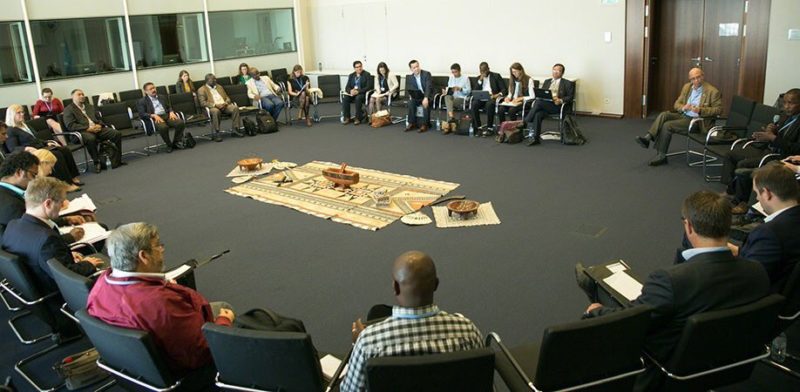The National Coordinator, Climate Sustainable Development Network (CSDevNet), Mr Atayi Babs, has called for urgent climate change action in Nigeria to avoid dangerous climate disasters in future.

Babs made the call in an interview with the News Agency of Nigeria (NAN) on Wednesday, June 20, 2018 in Abuja, against the backdrop of Nigeria’s preparation for the 2018 Facilitative Dialogue known as “Talanoa Dialogue’’.
The Talanoa Dialogue is a set of discussions on climate change implementation of the Paris Agreement structured around three main questions – where are we; where do we want to go; and how will we get there?
Talanoa is a Fijian word for round table, non-confrontational approach to finding solutions to complicated challenges. It allows for stories and interventions.
CSDevNet is a network of NGOs that promote pro-poor, climate-friendly and equity-based responses to climate change and sustainable development in Nigeria.
“Some changes in climate cannot be avoided due to past and inevitable future global emissions, but the detrimental effects can be avoided if we can reduce greenhouse gases emission to an acceptable level.
“Therefore, we must move towards taking climate actions that will alleviate the effects of climate change and a warmer world.’’
Babs said that CSDevNet was concerned that the implementation process for Nigeria’s Nationally Determined Contributions (NDCs) remained largely unknown with inadequate participation of non-state actors.
“Nigeria’s preparations for the 2018 Talanoa Dialogue should be up scaled as the country is yet to experience sufficient mobilisation and involvement of all non-state actors in the build-up to the dialogue.
“I believe that the dialogue will provide opportunities for accessing the latest scientific information based on the Intergovernmental Panel on Climate Change (IPCC) Special Report on 1.5c global temperature.
“And evaluate the adequacy of collective efforts and collective progress already made in identifying specific opportunities to enhance ambition and accelerate implementation, including sectoral, high-mitigation potential and regional opportunities.”
“Now is the time to lay strong foundations for the future and ensure that Nigerian perspectives are strongly reflected through the engagement of non-state actors in the implementation of Nigeria’s NDCs, the SDGs and the Economic Growth and Recovery Plan (EGRP).
“Such engagements must anchor on a genuine global sustainability and low carbon development pathway, and must reflect the integrated link on social, economic, cultural and environmental dimensions of development.
“Any implementation plan that fails to integrate these dimensions in a balanced way is not feasible for addressing present and future development challenges in Nigeria,’’ he added.
He said that policies would only remain on paper, if they would not match concrete efforts aimed at implementing new strategies for adaptation and mitigation within the sector, reduce emissions as well as build resilience to the effect of climate change.
“In the light of increasing rate of gas flaring, upsurge in the amount of soot and importation of generators across the country, Nigeria should address the issue of ambition in the country’s NDCs with regards to emission reduction targets from now until 2020 and post-2020,’’ he said.
Babs called on the civil society to come up with an extensive and collaborative framework that would orchestrate immediate mobilisation and awareness activities on the implementation of the Paris Agreement and the SDGs in the country.
“Keeping global temperatures below the two degree warming ceiling will require an economy-wide shift in investments from business-as-usual to low-carbon, climate-resilient models.
“Therefore the goal should reflect the scientific requirements and needs of African countries to first and foremost adapt, mitigate and cover loss and damage arising from climate change impacts,” he advised.
By Ebere Agozie
